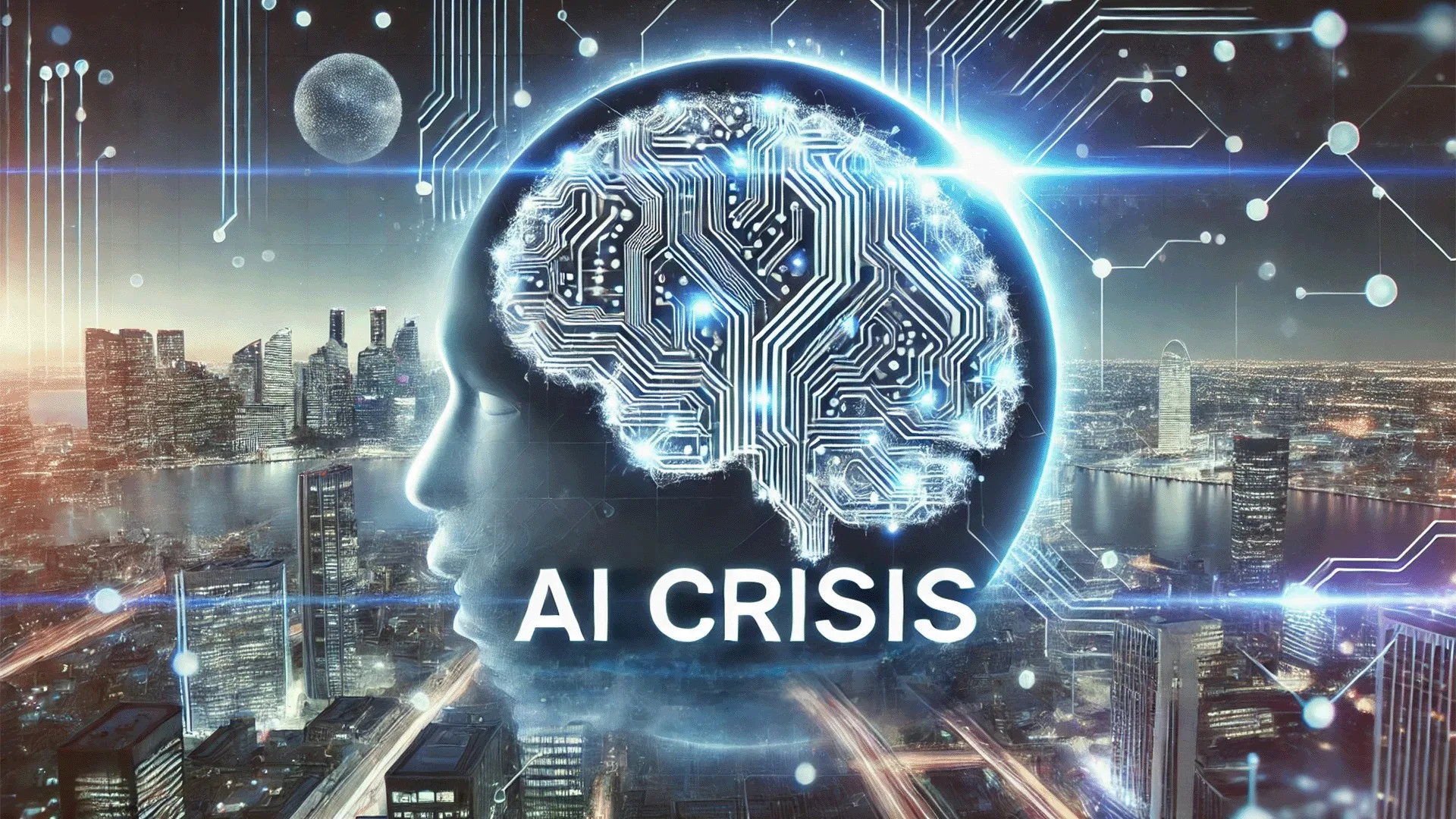In the competitive landscape of artificial intelligence, three major players—OpenAI, Google, and Anthropic—are facing significant hurdles in thei
In the competitive landscape of artificial intelligence, three major players—OpenAI, Google, and Anthropic—are facing significant hurdles in their pursuit of creating more advanced models. Despite their substantial investments and consistent push for innovation, these companies are experiencing diminishing returns, raising questions about the feasibility of achieving the ambitious goals they have set for AI.
This article explores the ongoing struggles faced by these AI giants, examining their recent model developments, challenges with data acquisition, escalating costs, and shifting strategies in the face of plateauing performance.
OpenAI’s Orion: Promising but Not Yet Delivering
OpenAI, known for its groundbreaking advancements in AI, such as the GPT series, was poised to achieve a significant milestone with its new model, Orion. The initial round of training for Orion, completed in September, was intended to surpass the capabilities of GPT-4. However, according to inside sources, Orion did not meet the company’s high expectations.
One major shortfall of Orion was its performance on coding queries it hadn’t been trained on, suggesting a lack of adequate coding data during the training phase. This highlights a critical challenge faced by OpenAI and other AI developers: the scarcity of high-quality, human-made data needed to train models to a level that represents a substantial leap over their predecessors.
The Plateau Problem
Orion’s struggles are symptomatic of a larger issue that extends beyond OpenAI. Despite significant advancements in model architecture and training techniques, the returns from these efforts are becoming less pronounced. The leap from GPT-3.5 to GPT-4 was marked by considerable enhancements in natural language understanding and coding capabilities, but Orion has yet to replicate that level of progress.
OpenAI has been engaged in a prolonged post-training phase for Orion, a step that includes refining user interactions and integrating human feedback. This process, while crucial for model improvement, has so far failed to yield the desired results. It’s now projected that Orion may not be ready for public release until early next year.
Google’s Gemini: High Hopes and High Stakes
Alphabet Inc.’s Google is also grappling with the challenges of pushing the boundaries of AI with its Gemini series. The upcoming version of Gemini, intended to build on the success of earlier releases, has reportedly fallen short of internal benchmarks.
A Shift in Expectations
A spokesperson for Google DeepMind expressed satisfaction with the ongoing development of Gemini, noting that further details would be shared when the time is right. However, reports indicate that the performance of the latest iteration has not lived up to the ambitious goals set by the company, illustrating a broader trend of diminishing returns as AI models become more complex.
This reality underscores a major obstacle: the belief that scaling models—adding more data and computing power—would directly correlate with performance improvements is increasingly under scrutiny.
Anthropic and the Elusive Opus 3.5
Anthropic, a lesser-known but fast-emerging player in the AI industry, has encountered similar setbacks with its Claude 3.5 Opus model. Originally slated for release this year, Opus 3.5 faced delays as its initial testing revealed improvements over previous models but not to the extent anticipated given its scale and development costs.
Anthropic CEO Dario Amodei addressed this in a recent podcast, acknowledging that while scaling has driven progress in AI, it is not a universal solution. He highlighted the growing challenge of sourcing sufficient training data and hinted that data scarcity could become a major bottleneck in future AI development.
The Data Dilemma: Quantity vs. Quality
The reliance on vast amounts of data has been foundational to training large language models. Early models, including the versions of GPT that powered initial iterations of ChatGPT, utilized data scraped from various sources such as social media posts, online articles, and public repositories. These data troves allowed AI systems to create sophisticated and context-aware responses.
However, creating models that surpass the capabilities of current AI systems involves sourcing data that is not only voluminous but also diverse and high-quality. As OpenAI discovered with Orion’s coding deficiencies, having a sufficient volume of data is no longer enough. Lila Tretikov, an AI strategist, emphasized that the challenge lies in obtaining unique datasets that require human oversight and expertise.
Send emails, automate marketing, monetize content – in one place
A Turn to Synthetic Data
In response to these challenges, some companies are turning to synthetic data, generated by algorithms designed to mimic real-world content. This approach has its advantages, enabling AI firms to supplement their training sets without extensive reliance on external data sources. Yet, synthetic data comes with its own set of limitations, particularly when it comes to replicating the nuance and diversity of human-generated content.
The creation of such data requires significant oversight to ensure it remains high-quality, a point reinforced by Tretikov’s assertion that synthetic data alone cannot bridge the gap to next-level AI development.
Rising Costs and Strategic Re-evaluations
Developing cutting-edge AI systems is an increasingly expensive endeavor. Amodei noted that this year, training a state-of-the-art model could cost $100 million, with projections that these figures may skyrocket to $100 billion in the future. The financial implications of these costs are profound, influencing decisions at both a strategic and operational level.
Incremental Upgrades vs. Major Releases
The rising costs have forced tech companies to reconsider their strategies. For instance, OpenAI has opted for incremental updates, focusing on refining existing models and adding features like voice capabilities to ChatGPT rather than pursuing a major release such as GPT-5. Sam Altman, CEO of OpenAI, acknowledged in an AMA session on Reddit that these decisions are shaped by the limits of current computing power and the need to balance resources carefully.
Google, meanwhile, has introduced updates to its Gemini series that enhance specific functionalities without pushing for revolutionary changes. This approach may be more sustainable but risks being perceived as underwhelming in an industry accustomed to rapid leaps in innovation.
New Directions: From Scaling to Specialization
The scaling era, defined by the belief that “bigger is better,” may be giving way to a new paradigm focused on specialization and new applications. Both OpenAI and Google are investing in developing agents—tools that can perform tasks such as booking appointments or drafting emails. These AI agents could represent the next major advancement by moving beyond simple query response models to systems capable of autonomous action.
Challenges in Resource Allocation
Altman highlighted the tough decisions OpenAI faces when allocating computing resources. While there is excitement about the potential for new breakthroughs, the reality is that supporting massive, highly complex models requires an enormous amount of infrastructure and computational power. Companies must strike a balance between maintaining older models, updating them, and investing in new, potentially more impactful projects.
Industry Sentiment and Expert Opinions
Noah Giansiracusa, a mathematics professor at Bentley University, remarked that while AI models will continue to improve, the rate of progress may not match the breakneck speed seen in recent years. The sentiment that scaling laws—though effective—are not limitless has taken root among many experts.
“People call them scaling laws. That’s a misnomer,” Amodei stated in his podcast. “They’re not laws of the universe. They’re empirical regularities.” This acknowledgment reflects a growing understanding in the tech community that while scaling has been the engine of progress, it may not be the long-term answer to building human-level intelligence or artificial general intelligence (AGI).
The Race to AGI: Still on Track?
The pursuit of AGI, where AI systems match or exceed human capabilities across various intellectual tasks, remains the holy grail for these companies. While Amodei and other industry leaders remain cautiously optimistic that AGI could be realized within years, recent challenges suggest that this timeline may need revision. The ongoing difficulties faced by OpenAI, Google, and Anthropic are a reminder that the road to AGI is not a straight path but one filled with complex, multifaceted challenges.
Final Thoughts: The Future of AI Development
As the AI industry faces these struggles, a few key takeaways emerge:
- Data Limitations: Access to high-quality, varied training data is proving to be a significant bottleneck.
- Cost vs. Benefit: The financial burden of training massive models forces companies to weigh the benefits of new releases against maintaining current systems.
- Shifting Strategies: The focus is gradually moving from larger, more powerful models to specialized applications and tools that provide practical user benefits.
While the hype around AI has been immense, the latest hurdles show that developing truly advanced models may require more than just scaling up. The industry may need to rethink its approach, placing greater emphasis on innovation in data sourcing, architecture, and application diversity to sustain meaningful progress.
Send emails, automate marketing, monetize content – in one place


